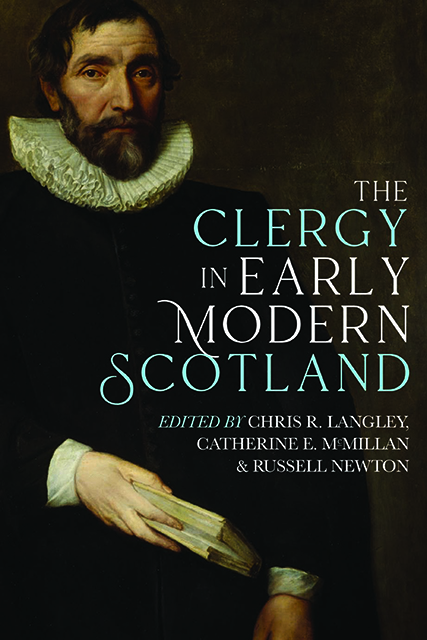2 - Ministers and the Bible in Early Modern Scotland
Published online by Cambridge University Press: 14 January 2023
Summary
In his posthumously published lectures on Thessalonians, Robert Rollock (1555–99), principal of Edinburgh University and minister at Greyfriars Kirk, claimed that ‘they who are called to the ministrie’ should ‘care for nothing but to speake the word of God’. In Rollock’s view, ministry was profoundly tied to scripture. It almost goes without saying that Scottish Protestantism was biblically centred: its services revolved around the word read, sung, and preached. What was generally true for Scottish Protestantism was particularly true for its clergy. Ministers devoted themselves to understanding the Bible’s meaning. They discussed it with one another, and it framed their view of the world around them. The Bible was the foundation for their pulpit exhortations and pastoral consolations, but it also gave them spiritual comfort in the privacy of their homes and occupied a central place in their interactions with one another. For these reasons, it is difficult to overstate the importance of the Bible for the Scottish ministry in the late sixteenth and seventeenth centuries.
Yet questions of how the clergy thought about, interacted with, and utilised the Bible have been given relatively little attention in recent scholarly literature, with some notable exceptions. In Scottish Puritanism (2000), David Mullan made a number of important observations concerning ministers and the Bible, showing how scripture fitted with other forms of natural and spiritual revelation in the minds of Scottish ministers, thereby offering an important window into the Bible’s place within the early modern world-view. Margo Todd’s The Culture of Protestantism (2002) explored the importance of ‘the word’, enhancing our understanding of Scottish preaching, the ‘logo-centric’ celebration of the sacraments, and this biblically orientated culture more generally. Jane Dawson’s Scotland Re-formed (2007) also highlighted the increased focus on the Bible following 1560, drawing attention to both the importance of psalm singing for popular biblical memorisation and how sermons became a form of entertainment. In Narratives of the Religious Self (2010), Mullan examined more personal readings of the Bible, demonstrating how Scottish Protestants, both clerical and lay, applied it directly to their own lives and appropriated biblical language. More recently, in his essay ‘Preaching, Reading, and Publishing the Word in Protestant Scotland’ (2015), Alasdair Raffe argued that public Bible reading was gradually replaced by a lecture (effectively another sermon) in the mid-seventeenth century.
- Type
- Chapter
- Information
- The Clergy in Early Modern Scotland , pp. 32 - 51Publisher: Boydell & BrewerPrint publication year: 2021



